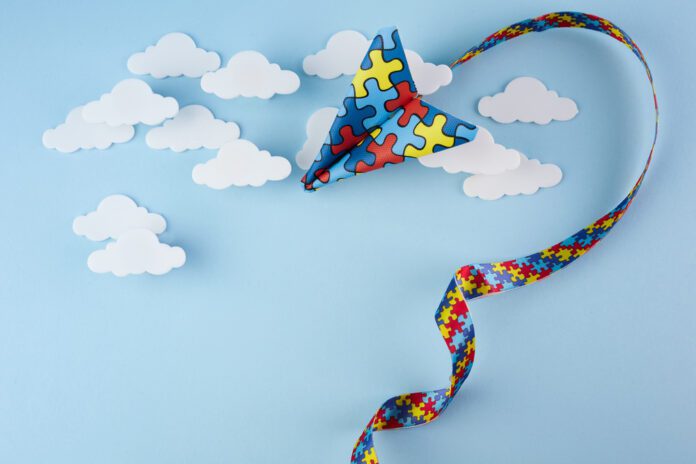World Autism Day, observed on April 2nd each year, stands as a beacon of awareness and understanding for autism spectrum disorder (ASD). This day is dedicated to increasing understanding, fostering acceptance, and promoting advocacy for the rights and needs of those with autism. Let’s delve into the origins of World Autism Day, provide insights into what autism is and its historical context, and offer resources for individuals and families navigating the complexities of autism.
History of World Autism Day
The establishment of World Autism Day dates back to December 18, 2007, when the United Nations General Assembly declared April 2nd as World Autism Awareness Day (WAAD). The resolution aimed to highlight the need to improve the quality of life of those with autism so they can lead full and meaningful lives as integral members of society. Since then, the day has served as a global platform to foster understanding, acceptance, and support for individuals with autism.
What is Autism? Understanding the Spectrum
Autism spectrum disorder (ASD) is a complex neurodevelopmental condition characterized by challenges in social interaction, communication, and repetitive behaviors. It is a spectrum disorder, meaning individuals with autism can exhibit a wide range of strengths and challenges, with no two people being exactly alike.
The historical understanding of autism has evolved significantly over time. Early misconceptions led to stigmatization and marginalization of individuals with autism. However, advancements in research and advocacy have paved the way for a more nuanced understanding of the condition.
Historical Context of Autism

The history of autism traces back to the early 20th century when researchers began to identify patterns of behavior in children that differed from typical development. One landmark moment came in 1943 when Dr. Leo Kanner published a paper describing a group of children with “early infantile autism,” marking the first significant clinical characterization of the condition.
The understanding of autism has dramatically evolved since the term was first introduced. Another pivotal figure in this journey was Hans Asperger, an Austrian pediatrician who, in the 1940s, identified a form of autism that later came to be known as Asperger’s Syndrome. Asperger’s research described children who displayed a distinct set of behaviors, including difficulties in social interaction and nonverbal communication, alongside remarkable focus and skills in specific areas. Although Asperger’s work was contemporaneous with that of Leo Kanner, who is often credited with first diagnosing autism, it wasn’t widely recognized until decades later. The acknowledgment of Asperger’s Syndrome broadened the understanding of the autism spectrum, emphasizing that individuals with autism can have a range of abilities and challenges.
Throughout the latter half of the 20th century, efforts to understand and support individuals with autism gained momentum. The introduction of diagnostic criteria, such as those outlined in the Diagnostic and Statistical Manual of Mental Disorders (DSM), provided clinicians with standardized guidelines for identifying and diagnosing autism.
In recent decades, increased awareness and advocacy have led to greater recognition of the diversity within the autism community. The concept of neurodiversity, which celebrates the unique strengths and perspectives of individuals with neurological differences, has gained traction, promoting acceptance and inclusion.
Resources for Parents and Individuals with Autism

Navigating the journey of autism can present various challenges, but numerous resources are available to support individuals and families:
- Autism Speaks: A leading autism advocacy organization, Autism Speaks offers a wealth of resources, including toolkits, support groups, and information on research and treatment options.
- The Autism Community in Action (TACA): TACA is focused on providing education, support, and resources to families affected by autism. They offer a variety of programs including educational events, parent mentorship, and resources for treatment options to help improve the quality of life for people with autism.
- Autism National Committee (AutCom): This advocacy organization is dedicated to “Social Justice for All Citizens with Autism” through a shared vision that emphasizes respect, dignity, and the rights of individuals with autism. AutCom publishes materials and organizes conferences that focus on the rights and interests of autistic people.
- Autistic Self Advocacy Network (ASAN): ASAN is a nonprofit organization run by and for autistic people, focusing on advocacy efforts to improve the lives of all autistic individuals. Their work includes public policy advocacy, the development of autistic cultural activities, and leadership training for autistic self-advocates.
- Autism Research Institute (ARI): ARI supports and conducts research to understand the nature of autism and to develop better treatments. ARI also provides educational resources for parents and professionals, advocating for the rights of individuals with autism.
- The Color of Autism Foundation: This organization is committed to educating and assisting African American families with children on the autism spectrum. The Color of Autism Foundation conducts awareness campaigns and provides resources to help improve the quality of life for families affected by autism.
- The National Autism Association (NAA): NAA focuses on safety, support, and education for individuals with autism and their families. They offer resources on a wide range of topics, from early learning and development to adult services. NAA also has a strong focus on issues related to wandering, safety, and prevention for those with autism.
- The Autism Society: With chapters across the United States, the Autism Society provides support services, educational resources, and advocacy efforts aimed at improving the lives of individuals with autism and their families.
- Organization for Autism Research (OAR): Dedicated to applied research and providing practical resources for those affected by autism.
- Online Communities: Platforms such as Reddit’s r/autism and Facebook groups provide spaces for individuals with autism and their families to connect, share experiences, and seek advice from others who understand their journey.
- Therapy and Intervention Services: Accessing early intervention services, behavioral therapy, and specialized educational programs can significantly benefit individuals with autism by promoting skill development and addressing specific challenges.
As we recognize the progress made in raising awareness and understanding of autism spectrum disorder, we must also foster acceptance, advocate for inclusion, and provide support services, to empower individuals with autism to thrive. Let us continue to work together to build a world that embraces and celebrates neurodiversity in all its forms.
Like this article? You may also like:
Sesame Street Releases New Autism Acceptance Content
Donald Triplett, First Person Diagnosed with Autism, Dies at 89
Share your thoughts with AmeriDisability on Facebook, Twitter and Instagram.
Check out the Resources page. Claim or add your disability-focused business or nonprofit for free.






